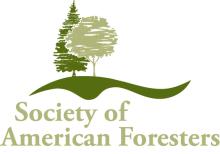Resource information
Leading climate change experts within the international scientific community support the use of forest carbon sinks as a climate change mitigation tool. Functioning regulatory and voluntary carbon offset frameworks within the United States recognize forest offsets with varying levels of stringency. Emerging carbon emission reduction legislation outlines a regulatory cap-and-trade system with provisions for significant domestic forest-related offsets. Given the opportunity for forest carbon offsets in the United States, there exists minimal enquiry regarding the attitudes of nonindustrial private forest (NIPF) landowners regarding the management of their forestland for carbon sequestration and trading. The current research uses a nationwide survey of forest landowners and investigates the effect of land characteristics, land-use planning, and demographics on NIPF owners' attitudes toward these carbon sequestration opportunities. Overall, only 37% of respondents held positive attitudes regarding the management of their forestland for carbon sequestration and trading. Results suggest that increasing acreage size and absentee ownership tended to negatively influence attitudes whereas plans to harvest timber, plans to bequeath to heirs, and education level positively influenced attitudes.



